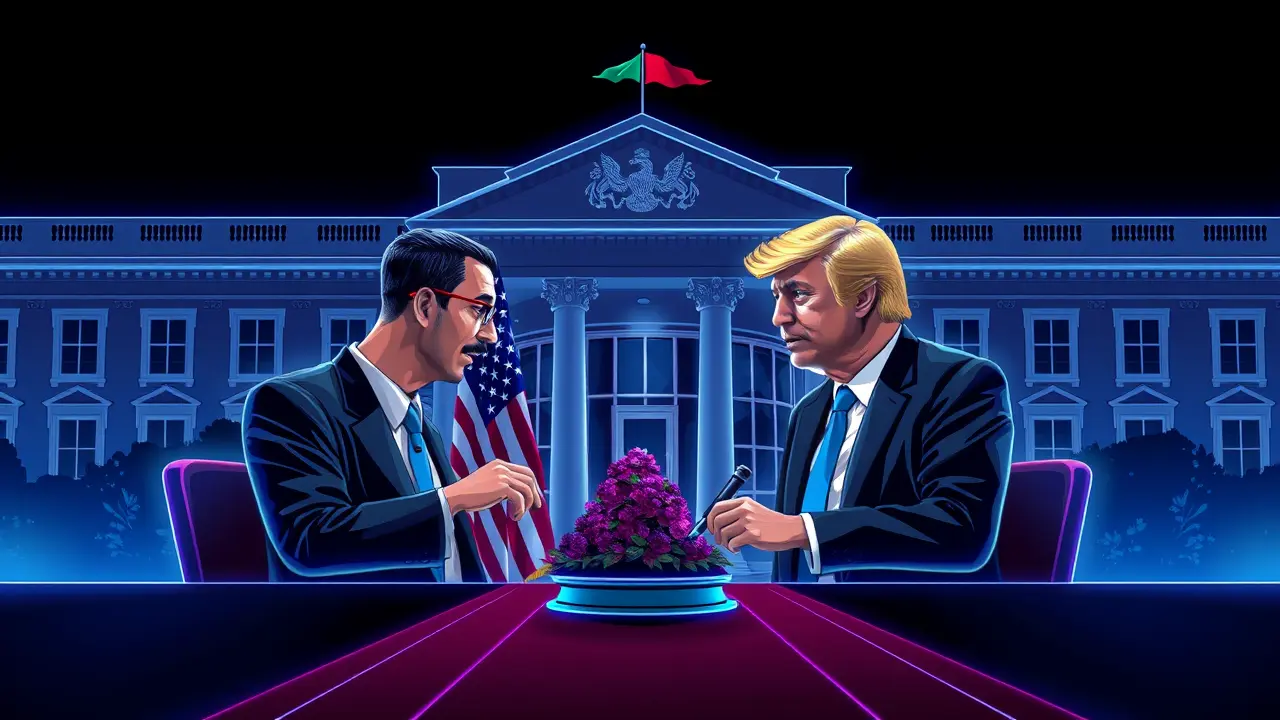
Politicsconflict & defenseMilitary Operations
Syria Joins US Coalition Against IS After Trump Meeting.
RO
Robert Hayes
4 hours ago7 min read1 comments
In a geopolitical realignment as stark as it was unexpected, the Syrian regime, long a pariah state in Washington's eyes, has formally joined the US-led coalition against the Islamic State following a landmark meeting between its representative, Ahmed al-Sharaa, and President Donald Trump. This development is not merely a shift in tactical alliances; it represents a fundamental recalibration of the Middle Eastern chessboard, echoing historical precedents where former adversaries united against a common, existential foe.The very presence of al-Sharaa at the White House—a figure once designated a terrorist by the US State Department for his alleged role in fueling the Iraqi insurgency—would have been unthinkable even a year prior, underscoring the profound pragmatism, or perhaps desperation, driving this new accord. Analysts are immediately drawn to parallels with the US-Soviet cooperation during World War II, a marriage of convenience that dissolved once the Nazi threat was neutralized, suggesting a similarly fragile foundation for this new partnership.The core of this agreement likely hinges on a brutal calculus: the Assad regime, while having regained significant territory with Russian and Iranian backing, views the lingering IS insurgency in its eastern deserts as a persistent threat to its hard-won stability. For the Trump administration, this move appears to be a final, decisive push to eradicate the last vestiges of the IS caliphate, a key campaign promise, even if it means tacitly legitimizing a government it had spent years and billions of dollars attempting to overthrow.The consequences are monumental and fraught with peril. Key US allies, particularly the Kurdish-led Syrian Democratic Forces (SDF) who bore the brunt of the ground fighting against IS, now face an existential crisis, potentially being sidelined or even betrayed in favor of cooperation with Damascus.Meanwhile, this move places the US in direct, if unofficial, alignment with Russian and Iranian interests in Syria, creating a bizarre scenario where American and Iranian proxy forces are ostensibly on the same side, a situation that could have unpredictable repercussions for the broader region. The long-term strategic implications are even murkier; will this cooperation extend beyond the defeat of IS to encompass a political settlement for Syria, and if so, on whose terms? Or is this a purely temporary, tactical gambit that will collapse the moment the last IS fighter is eliminated, leaving a power vacuum that could be filled by a resurgent Assad or yet another extremist group? The White House meeting, therefore, is not just a photo opportunity; it is the opening move in a dangerous and complex new chapter in the Syrian conflict, one where old enemies are now, however reluctantly, allies, and where the path to lasting peace remains as elusive as ever.
#Syria
#US-led coalition
#IS group
#Donald Trump
#Ahmed al-Sharaa
#White House
#diplomacy
#terrorism
#featured
Stay Informed. Act Smarter.
Get weekly highlights, major headlines, and expert insights — then put your knowledge to work in our live prediction markets.
© 2025 Outpoll Service LTD. All rights reserved.